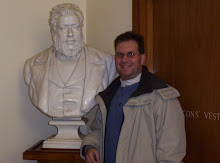Ever since visiting my IMB missionary brother Andrew in Bolivia several years ago, I have been fascinated by “chronological Bible storying”. CBS is a strategy for communicating the gospel, using story primarily for those who are low in literacy and or have very little experience with the message of the Bible. The missionary/church planter will tell the story of God’s Word week by week culminating in an invitation to not just hear about this God, but to know Him through His Son Jesus.
Ironically, I think what attracts me to chronological Bible storying is the fact that I am literate (though this was a topic of debate in the halls of higher learning at one point) and I am very familiar with God’s Word. The truth is, I envy the experience of discovery and excitement that must unfold each week as new truth is unveiled about who God is as people hear it for the first time.
What would creation mean to me if I heard about it as though it were some just released secret? How would I relate to the trials, triumphs and failures of the people of Israel? What would I think of the incarnation of God as Christ…and his death? And then His resurrection! Would I even believe that a guy like Saul could become a man like Paul?
This past Sunday evening I began a new sermon series entitled “The Story of God” which will attempt to use the principles of CBS to help my literate and somewhat Biblically aware congregation be caught once again (or for the first time) by the wonder of God’s story. Working with my fellow staff members, we selected thirty eight key Biblical narratives that we will be sharing between now and the spring.
Here is the list I am using.

How would your list look? What would you include that we did not? What would you drop from the list?
Ironically, I think what attracts me to chronological Bible storying is the fact that I am literate (though this was a topic of debate in the halls of higher learning at one point) and I am very familiar with God’s Word. The truth is, I envy the experience of discovery and excitement that must unfold each week as new truth is unveiled about who God is as people hear it for the first time.
What would creation mean to me if I heard about it as though it were some just released secret? How would I relate to the trials, triumphs and failures of the people of Israel? What would I think of the incarnation of God as Christ…and his death? And then His resurrection! Would I even believe that a guy like Saul could become a man like Paul?
This past Sunday evening I began a new sermon series entitled “The Story of God” which will attempt to use the principles of CBS to help my literate and somewhat Biblically aware congregation be caught once again (or for the first time) by the wonder of God’s story. Working with my fellow staff members, we selected thirty eight key Biblical narratives that we will be sharing between now and the spring.
Here is the list I am using.

How would your list look? What would you include that we did not? What would you drop from the list?







1 comment:
Tim,
Great list! I'd make few, if any, modifications (maybe Ruth, Esther, another minor prophet or two or commonalities in the 12). As long as you are covering narratives, don't forget the main point of each smaller narrative so that you still do "narrative exposition."
Joel
Post a Comment